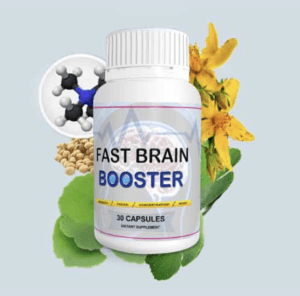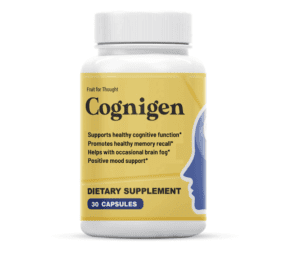Forgetfulness Issue
The human brain is an intricate organ, capable of incredible feats of memory and cognition. However, it is also susceptible to various memory problems, including forgetfulness and memory loss diseases. Memory loss is not just an age-related concern; it can affect individuals at any stage of life. Memory issues can be a debilitating experience, interfering with one’s daily activities and quality of life.
Understanding memory loss and cognitive health is crucial in today’s fast-paced world, where stress and lifestyle factors often contribute to memory problems. There’s a significant importance attached to cognitive health, as it not only pertains to memory but also to the ability to learn, concentrate, and make decisions. Therefore, understanding and addressing memory loss is a vital aspect of maintaining cognitive health.
As we delve into the topic of memory loss and cognitive health, it’s important to note that memory problems can be managed and, in some cases, reversed with appropriate care and strategies. This blog post aims to provide a comprehensive understanding of memory and memory problems, the causes, and how to address these issues.
Understanding Memory
What causes forgetfulness?
Before grappling with the question, “Why is my memory so bad,” it’s essential to understand what memory is and what causes forgetfulness. Memory is the brain’s mechanism to encode, store, and retrieve information. It’s a complex process that involves different parts of the brain, and it’s crucial for learning, reasoning, and adapting to new situations.
Forgetting is a normal part of memory function. It’s the brain’s way of eliminating unnecessary information to make room for new information. However, when forgetfulness becomes frequent or severe, it may indicate memory problems. Several factors can cause forgetfulness, such as stress, sleep deprivation, poor nutrition, lack of physical and mental exercise, and certain medical conditions, like Alzheimer’s disease.
Additionally, certain medications and substances, such as alcohol and drugs, can also lead to memory problems. It’s important to have a clear understanding of these causes, as it helps in early detection and treatment of memory issues.
The common misconceptions about memory problems
There are several misconceptions about memory problems that can often lead to unnecessary worry or delay in seeking help. One common myth is that memory loss is a normal part of aging. While it’s true that memory can decline with age, severe memory loss is not a typical aspect of aging and may signal a more serious problem, like dementia.
Another misconception is that if you’re forgetful, you’re on the track to developing a severe memory loss disease. Yes, frequent forgetfulness can be a sign of memory issues, but it’s not always the case. Many people experience occasional forgetfulness due to stress, lack of sleep, or even multitasking.
Others believe that memory problems only affect older people. In reality, memory issues can occur at any age. In fact, issues like “Why is my memory so bad at 20?” are increasingly common due to lifestyle factors and increased stress levels. It’s essential to dispel these misconceptions to better understand and address memory problems.
Why is my memory so bad? Exploring potential reasons
Many people often ask, “Why is my memory so bad?” This question isn’t limited to older individuals; even younger people sometimes wonder, “Why is my memory so bad at 20?” The truth is, that memory problems can occur for various reasons, not just age.
Stress is a common trigger for memory problems. When you’re stressed, your body releases cortisol, a hormone that can interfere with memory processes. Poor sleep also affects memory, as sleep is when the brain consolidates and stores memories. Lack of physical activity and a poor diet, particularly one low in omega-3 fatty acids, can also contribute to memory problems.
Another potential reason for memory issues is multitasking. In today’s fast-paced world, people often juggle multiple tasks simultaneously. However, research shows that multitasking can overload the brain and affect memory. Therefore, if you’re wondering, “Why do I keep forgetting things?” it might be time to consider your lifestyle habits.
Memory Loss diseases: An overview
Sometimes, frequent forgetfulness or memory problems may be signs of memory loss diseases. These are medical conditions that affect memory and other cognitive functions. Alzheimer’s disease is the most common type of memory loss disease. It’s a progressive disorder that gradually impairs memory, thinking skills, and the ability to carry out simple tasks.
Other memory loss diseases include vascular dementia, often caused by a stroke, and Lewy body dementia, characterized by protein deposits in the brain. There’s also frontotemporal dementia, which affects personality and behavior besides memory. Understanding these diseases is crucial for early detection and treatment, which can slow progression and improve quality of life.
The impact of age on memory:
Why is my memory so bad at 20?
Age can have an impact on memory, but it’s not the only factor. Many young adults often wonder, “Why is my memory so bad at 20?” In fact, memory problems in young adults are often tied to lifestyle factors rather than age.
In today’s digital age, young adults are constantly bombarded with information, leading to cognitive overload. This, coupled with high stress levels, inadequate sleep, and poor nutrition, can affect memory. Additionally, the increasing use of digital devices has been linked to reduced attention span, which can impact memory. Therefore, it’s crucial for young adults to manage these factors to maintain their cognitive health.
Hey there, Gen Z! Ever found yourself asking, “Why is my memory so bad, and I’m only 20?” You’re not alone, and it’s not just about age. Let’s dive into what’s really going on. 🕵️♀️
📲 Digital Overload: In our hyper-connected world, your brain is like a browser with 50 tabs open. Information is coming at you 24/7, and it’s easy to feel overwhelmed. This cognitive overload can mess with your memory.
😓 Stress & Sleep: Juggling school, work, and social life? High stress and lack of sleep are memory’s worst enemies. Your brain needs downtime to function at its best.
🍔 Nutrition Matters: You are what you eat, and that includes your brain. Poor nutrition can fog up your mental clarity, making it harder to remember things.
📵 Tech & Attention Span: Our devices are great, but they’re also designed to grab our attention and not let go. This can lead to a shorter attention span, affecting your ability to remember things long-term.
🌟 The Takeaway: Age isn’t the only factor affecting your memory. It’s a mix of lifestyle choices and the digital age we live in. So, take control! Manage stress, get enough sleep, eat right, and maybe do a digital detox. Your brain will thank you! 🙏

Addressing memory issues:
The importance of early detection
Addressing memory issues is crucial, and early detection plays a critical role. Early detection of memory problems allows for early intervention, which can slow the progression of memory loss diseases and improve quality of life. It also provides the opportunity to address reversible causes of memory problems, like medication side effects or vitamin deficiencies.
If you or a loved one is experiencing frequent forgetfulness or memory problems, it’s important to seek medical advice. Cognitive tests, blood tests, and brain imaging can help identify the cause and guide treatment. Remember, it’s never too early or too late to address memory issues.
Why do I keep forgetting things?
Strategies to enhance memory
If you’re often asking yourself, “Why do I keep forgetting things?” don’t fret. There are strategies to enhance memory and improve cognitive health. Regular physical exercise, a healthy diet rich in fruits, vegetables, and omega-3 fatty acids, and adequate sleep can boost memory.
Mental exercises, like puzzles and memory games, can also improve memory. Additionally, mindfulness and meditation can enhance memory by reducing stress and improving attention. It’s also helpful to reduce multitasking and give your full attention to one task at a time.
Coping with memory problems:
Practical tips and advice
Coping with memory problems can be challenging, but there are practical tips and advice to manage them. Keeping a daily routine and using tools like calendars, reminder apps, and notes can help remember tasks and appointments. It’s also beneficial to stay socially active, as social interaction stimulates the brain.
If you’re dealing with memory loss diseases, it’s crucial to seek professional care and follow prescribed treatments. Coping strategies, like communication techniques and environmental modifications, can also help manage symptoms. Remember, it’s possible to live well with memory problems with the right strategies and support.
The role of professional care in managing memory loss diseases
Professional care plays a vital role in managing memory loss diseases. Neurologists, geriatricians, and psychologists can diagnose and treat memory loss diseases, while occupational therapists can provide strategies to manage daily activities. Additionally, support groups and counseling can offer emotional support and practical advice to individuals with memory loss diseases and their families.
Professional care is not just about managing symptoms; it’s about improving quality of life. With early detection, appropriate treatment, and supportive care, it’s possible to live a fulfilling life with memory loss diseases.
Conclusion: Prioritizing cognitive health to prevent memory loss
In conclusion, memory loss and cognitive health are significant aspects of overall health. Whether you’re asking, “Why is my memory so bad?” or dealing with a memory loss disease, it’s important to prioritize cognitive health. By understanding memory, dispelling misconceptions, and addressing memory problems early, it’s possible to enhance memory and prevent memory loss.
Remember, maintaining a healthy lifestyle, employing memory-boosting strategies, and seeking professional care when needed can significantly improve cognitive health. So, let’s prioritize our cognitive health and take proactive steps toward a healthier, sharper mind.
Products recommenced:
Neurodrine
- Improves memory.
- Based on medical studies.
- Clinical trials that created Neurodrine.
Affiliate Disclosure:
The links contained in this product review may result in a small commission. This goes towards supporting our research and editorial team and please know we only recommend high-quality products.
Resources:
- Alzheimer’s Association (alz.org): Provides a wide range of information on brain health and Alzheimer’s disease.
- Harvard Brain Health (health.harvard.edu/mind-and-mood): Offers articles and insights on brain health from a reputable academic source.
- Mayo Clinic (mayoclinic.org): A trusted source for medical information, including topics on brain health.
- National Institute on Aging (nia.nih.gov): Provides research-based information on aging and brain health.
- BrainFacts.org: A public information initiative of The Kavli Foundation, the Gatsby Charitable Foundation, and the Society for Neuroscience.
- WebMD (webmd.com): A well-known source of medical information including topics on brain health.
- The Dana Foundation (dana.org): Offers information on current research in brain science.
- American Brain Foundation (americanbrainfoundation.org): Provides information on various brain diseases and disorders.
- Mental Health America (mhanational.org): Offers resources on mental health, which is closely related to brain health.
- Mind (UK) (mind.org.uk): Provides information and support on mental health and brain health.





